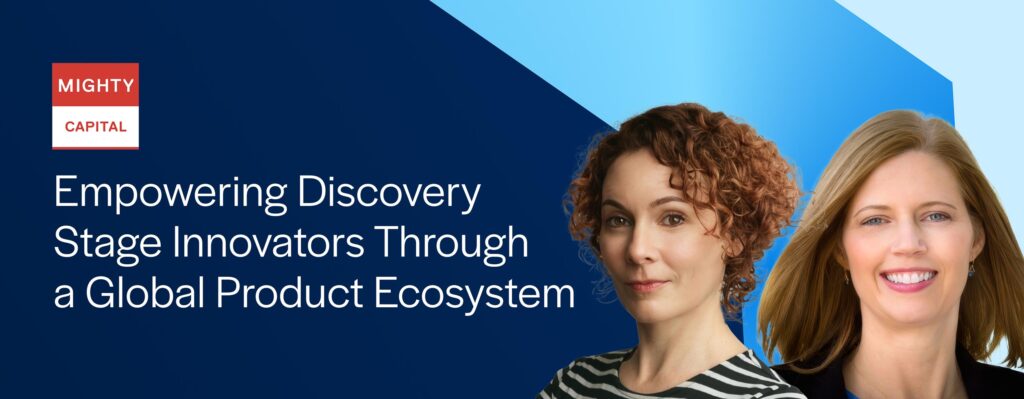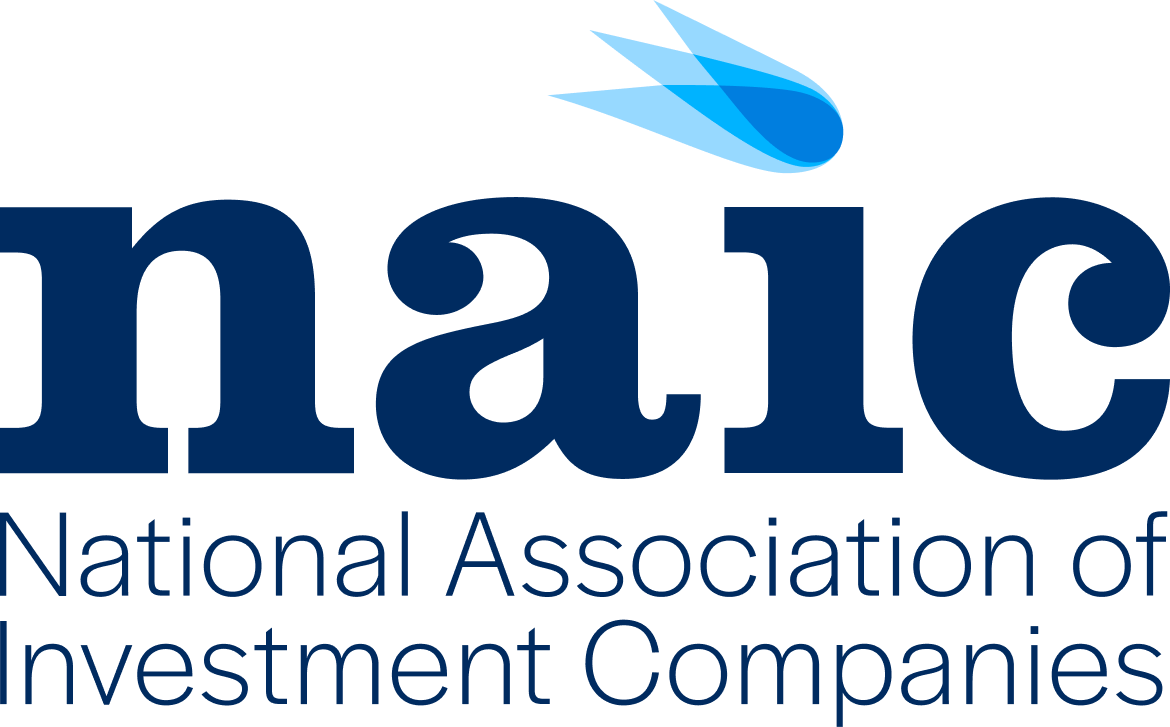
SC Moatti’s journey from studying electrical engineering in France to investing in the heart of Silicon Valley’s tech scene was fueled by a passion for operating on the business side of technology and leveraging her experience in product development in the venture capital space. Jennifer Vancini, a Midwestern native with deep investing experience, also understands that products drive business value. With a shared vision for delivering exceptional returns in the venture capital space, the two co-founded Mighty Capital, one of Silicon Valley’s few woman-owned venture capital firms.
Now deploying capital out of its third fund, San Francisco-based Mighty Capital targets companies in B2B Enterprise SaaS, Security, Health AI, Fintech, Blockchain, Cloud, and other technology fields. With more than 30 investments completed, the duo is poised for aggressive growth, looking to break the billion-dollar mark in AUM in the next decade while continuing to return value to investors.
The firm prioritizes product-first businesses and supports its portfolio companies by helping them accelerate sales growth. This growth is achieved through Mighty Capital’s connection with Products That Count, a global network of 500,000 product managers—representing about one-third of the world’s total. The non-profit organization, which Moatti founded and where she now serves as board chair, offers product managers resources and upskilling opportunities to accelerate their careers. Products That Count has also become an advisor to nearly all Chief Product Officers at Fortune 1000 companies.
Mighty Capital believes that the traditional Series A stage is going through a dislocation similar to the Seed stage a decade ago. Some Series A businesses are ballooning with valuations north of $100 million, while others are shrinking to enable capital-efficient discovery. The “Discovery Stage” appeals to serial entrepreneurs who wish to avoid the equity dilution often seen in larger funding rounds. Discovery Stage companies typically have valuations between $15-$30 million and are gaining some sales traction but need further growth to qualify for larger Series A investments. “It’s companies showing a path of being able to get to venture velocity, but they need to achieve a few more things to get to more of those metrics that will make them successful and not overly dilutive,” explains Vancini.
Moatti says discovery-stage companies value retaining control and flexibility over their growth trajectory – something larger multi-stage investors are likely to oppose. “This stage is a point where entrepreneurs can say, ‘I’m going to raise as little as I need to see if I need to raise further funding, or if the retooling that technologies like AI and blockchain generate enough efficiency that there’s positive unit economics faster and we don’t need to raise that much money,’” she explains. “That’s, in essence, a reaction to that multi-stage firm constraining for them.”
Strategic Growth, Early Wins
Earning an MS in Electrical Engineering from Centrale-Supelec, one of France’s top education institutions, Moatti later received an MBA at Stanford and spent a decade gaining diverse experience across the tech industry as an entrepreneur and product manager, contributing to early developments in mobile technology and social media at companies like Facebook (now Meta). Her expertise was utilized to write Mobilized: An Insider’s Guide to the Business and Future of Connected Technology, an award-winning bestseller that examined what makes digital products successful. That book also led to the formation of Products That Count and its sizeable community.
Vancini, a seasoned investor and strategic business leader with extensive experience in high-growth sectors, particularly in security and mobile technology, held executive roles in corporate and strategic business development with companies like Telefonica, Symbian/Nokia, and Certicom, where she played a key role in taking the company from startup to IPO. The duo built a relationship while Vancini ran Pointgrey, a family office, and Moatti operated as an angel investor. Sometime thereafter, Moatti approached Vancini with the idea of building a firm that leveraged the Products That Count community. “It really was this ecosystem that SC had started building after she was invited to write that book on product development,” Vancini recalls.
“My career had been in building and monetizing ecosystems, so I understood what was unique about it and said, ‘Why not give it a try and see if the thesis works?’”
Jennifer Vancini, General Partner, Might Capital

Moatti and Vancini benefited from a strong foundation built from their previous careers when launching Mighty Capital in 2017, and they already had essential infrastructure, such as a reliable law firm and bank relationships. The pieces were falling into place, and it felt right. “This business has high highs and low lows by design,” says Vancini. “But there was never a point at which it was like that feeling that we’re on the wrong track.”
Navigating Challenges
One of the main early challenges was transitioning to raising external funds, which came with new responsibilities. Unlike funding a startup, raising capital for a venture firm meant seeking investment without a direct operational purpose, adding complexity to the process. They focused on scaling methodically, tripling their fund sizes each time while balancing the need to deliver returns for investors while managing operational growth.
“Give me money so I can have money as opposed to give me money so I can go hire an engineer to build a company. It’s very different.”
SC Moatti, Founding Managing Partner,
Mighty Capitall


“Give me money so I can have money as opposed to give me money so I can go hire an engineer to build a company. It’s very different.”
SC Moatti, Founding Managing Partner,
Mighty Capitall
Their approach was to start small and grow fast. Vancini and Moatti began deploying capital from a $13 million fund, which they say some questioned for its modest size. Mighty Capital’s first investment, Amplitude, an analytics platform that powers websites, mobile apps, and digital transformations for Fortune 1000 companies, came soon after the firm was established. The company’s CEO, Spenser Skates, who came to Mighty Capital’s attention through Products That Count, credits Mighty Capital for accelerating its sales cycle by 30%. Amplitude went public on the NASDAQ in 2021 at a $5 billion valuation.
Another portfolio company, PeopleReign, is a conversational AI platform designed to automate IT and HR employee services. Its virtual agent supports 27 languages and is pre-configured to address around 5 million common employee inquiries. By leveraging AI, PeopleReign manages routine tasks, allowing employees to focus on more strategic, mission-critical objectives that require human insight. Since Mighty Capital’s investment less than six months ago, PeopleReign has already doubled its revenue.
While the 2023 Silicon Valley Bank collapse had a minimal direct impact on Mighty Capital’s portfolio, the broader challenges of rising interest rates posed new hurdles, particularly in securing venture debt for portfolio companies. However, other financial institutions quickly stepped in to fill the gap left by SVB. The firm also noted a shift in LP preferences toward fixed-income investments, as higher interest rates affected broader macroeconomic conditions, including enterprise spending. Despite these challenges, Mighty Capital remains optimistic that enterprise spending will increase as rates stabilize, especially for companies delivering essential business value.
Looking forward, Mighty Capital has set ambitious goals for growth, with Moatti describing the firm as “ruthlessly ambitious” in its pursuit of increasing AUM over the next decade. In the meantime, the duo will continue to execute on Mighty Capital’s thesis that product management will soon be the most critical function in businesses worldwide. “Product is what’s driving real business value,” says Vancini. “You can’t fake it anymore with marketing. It’s too easy for people to switch.”

